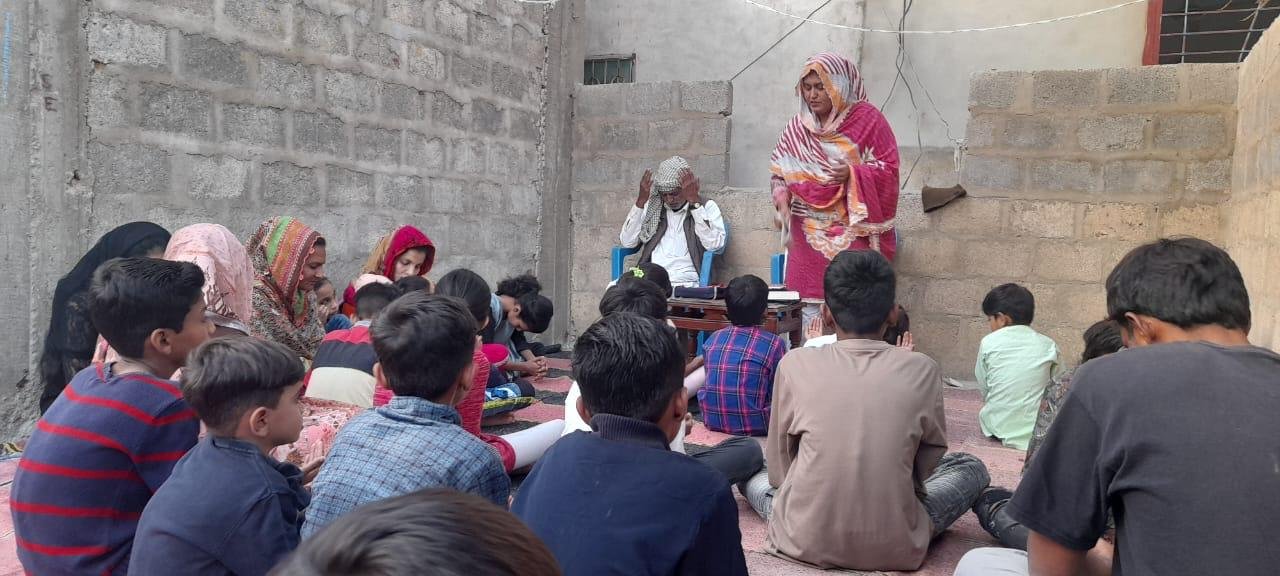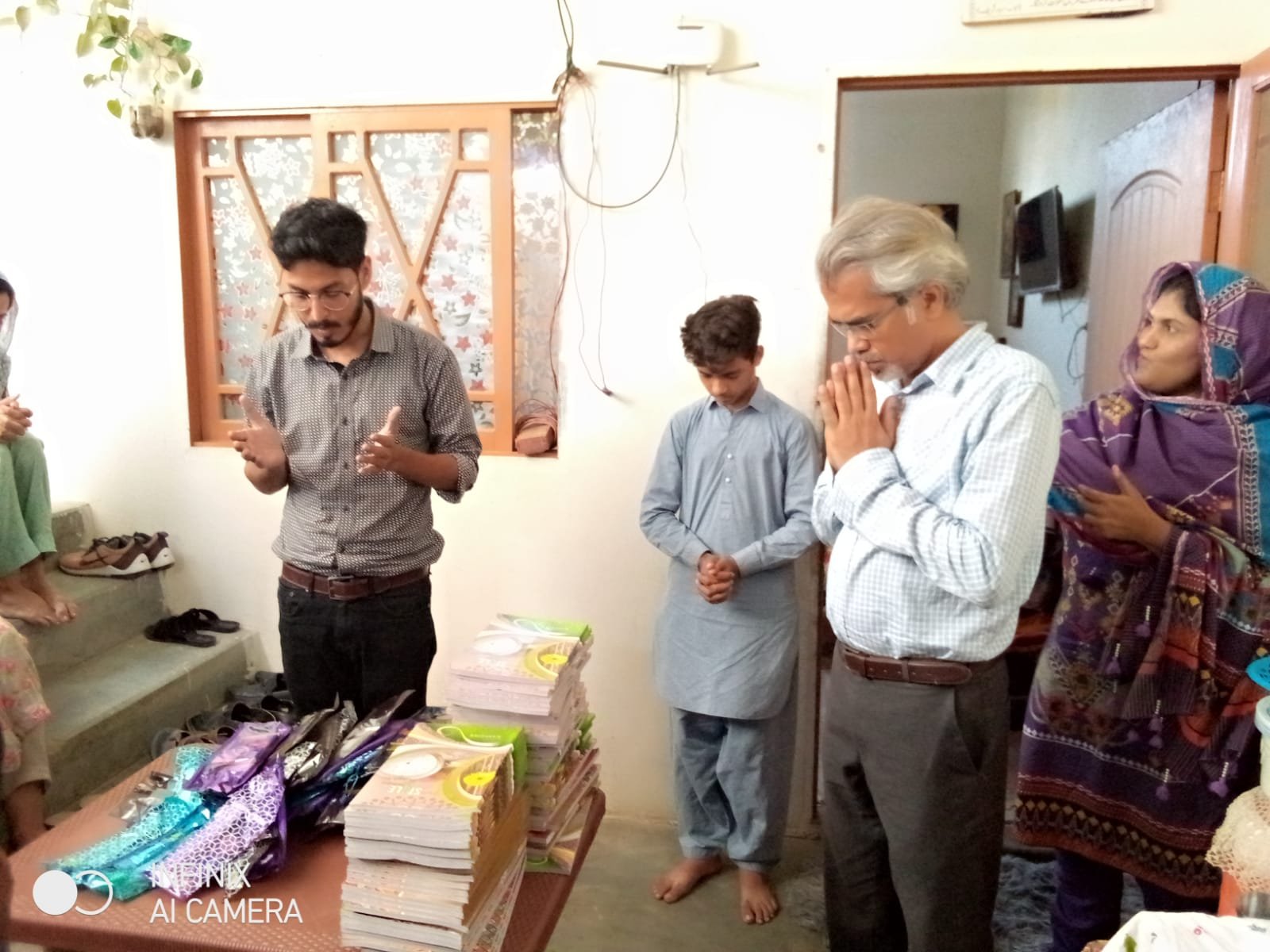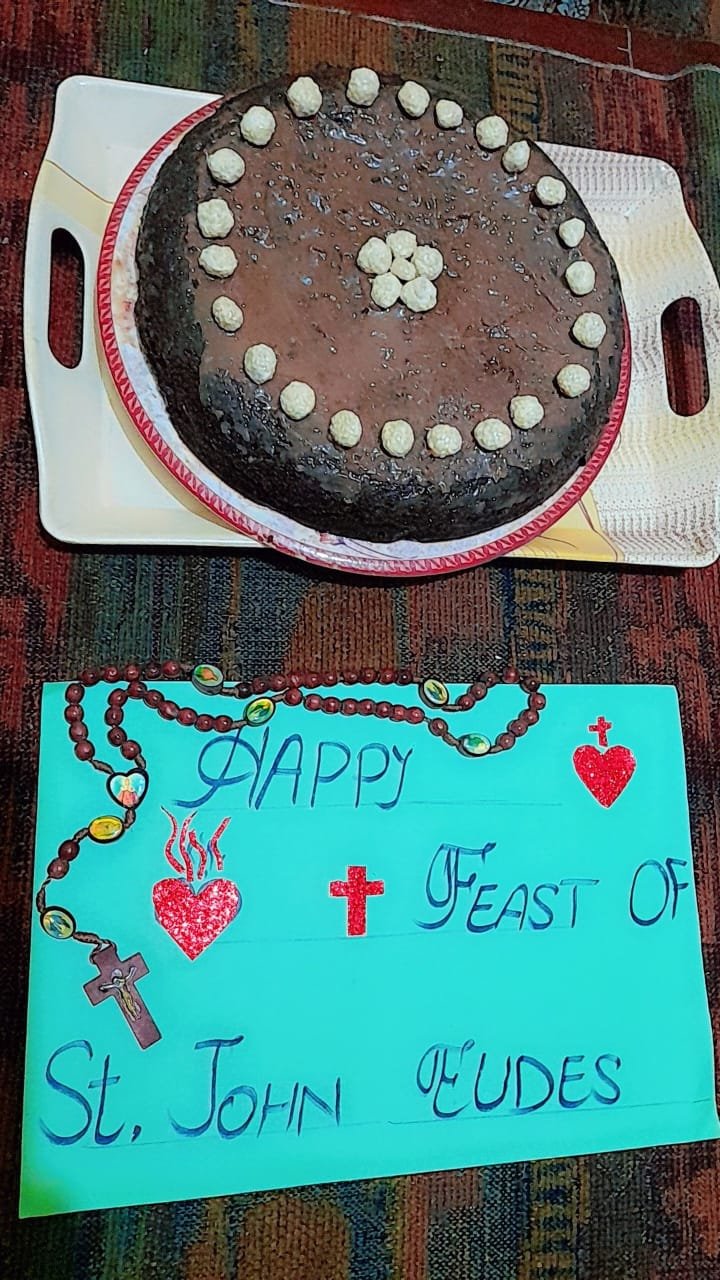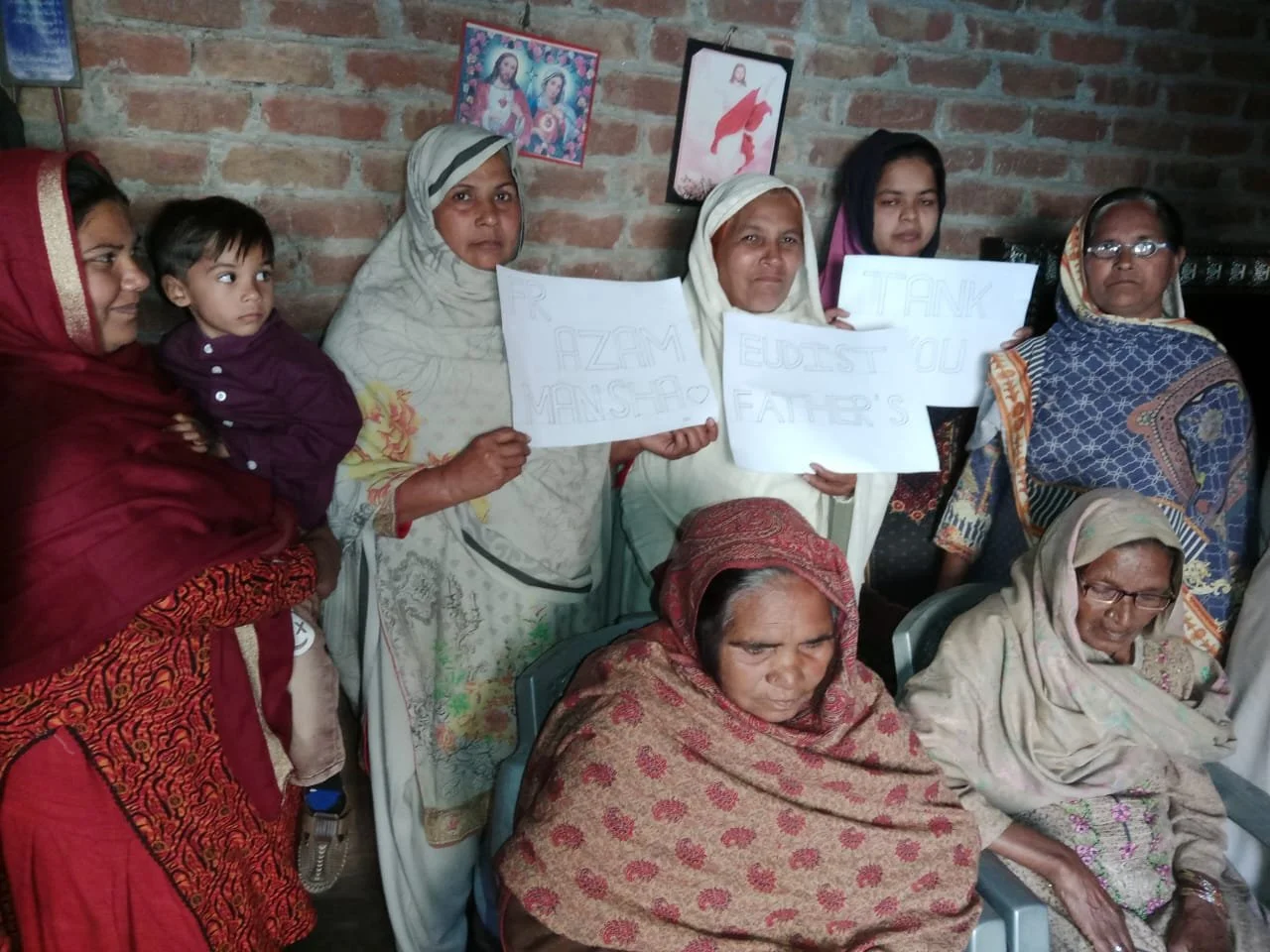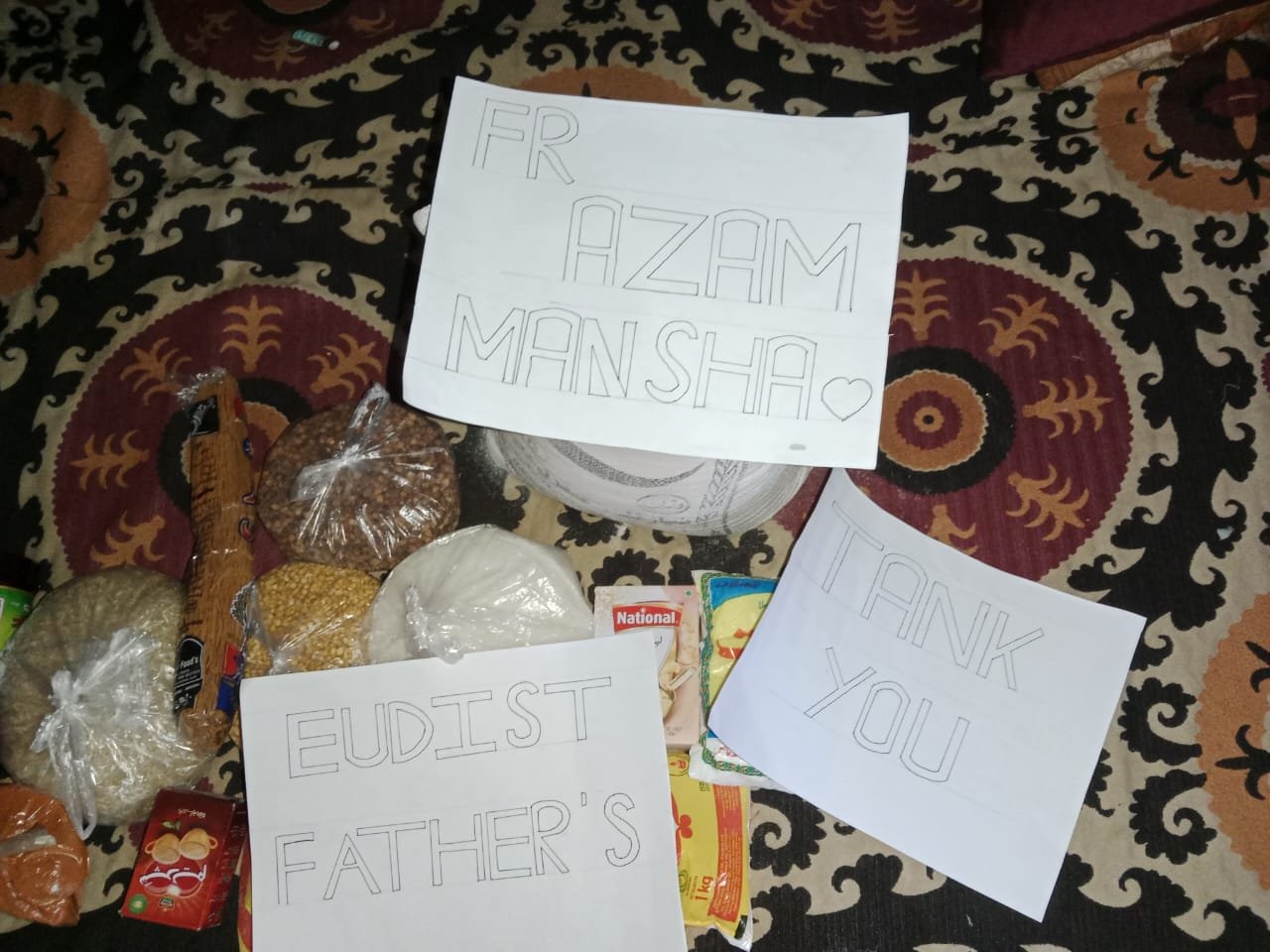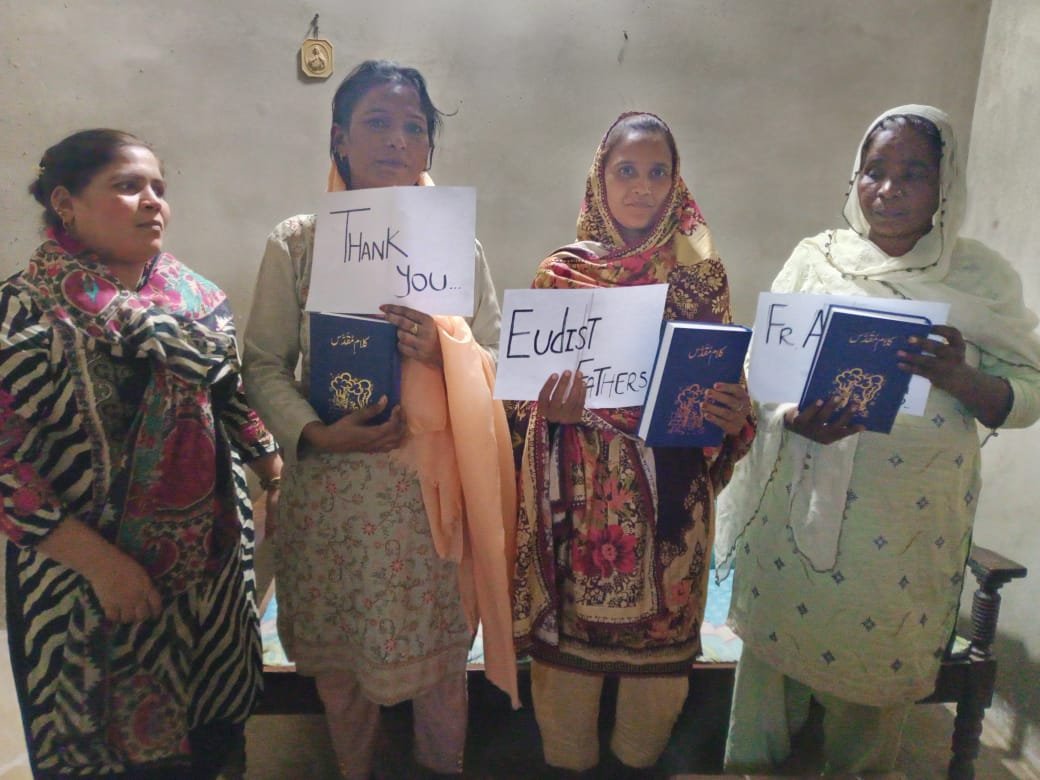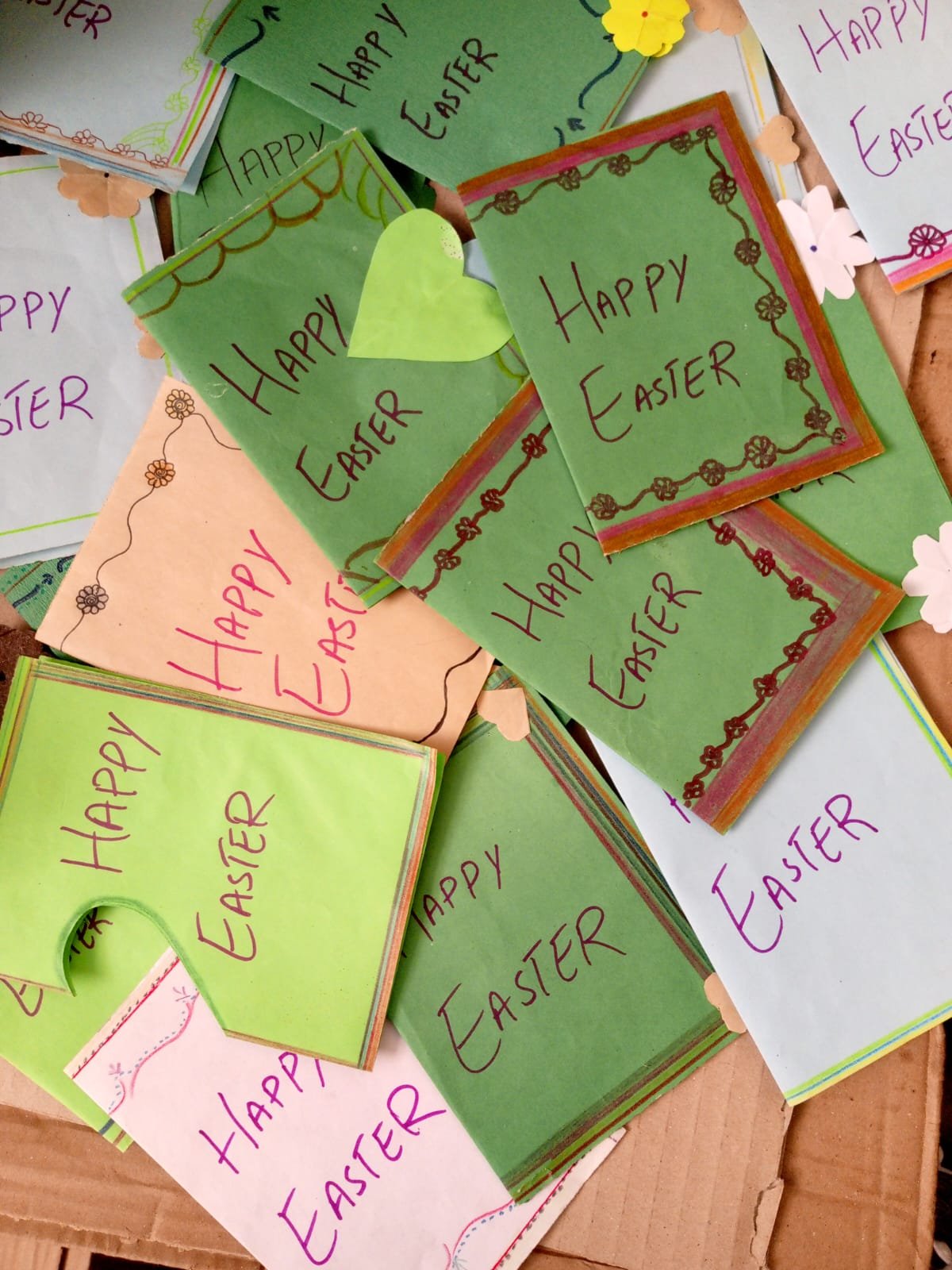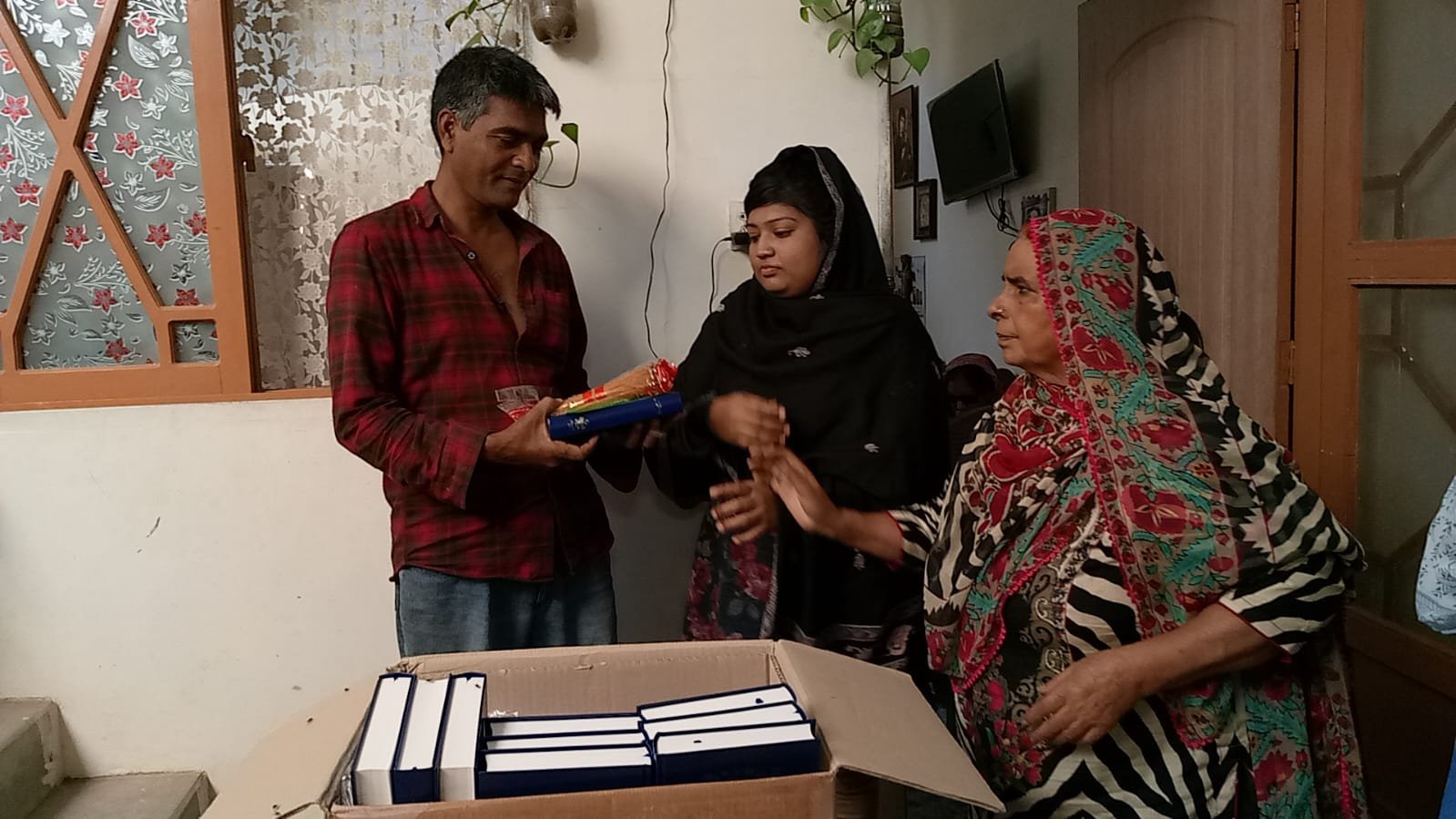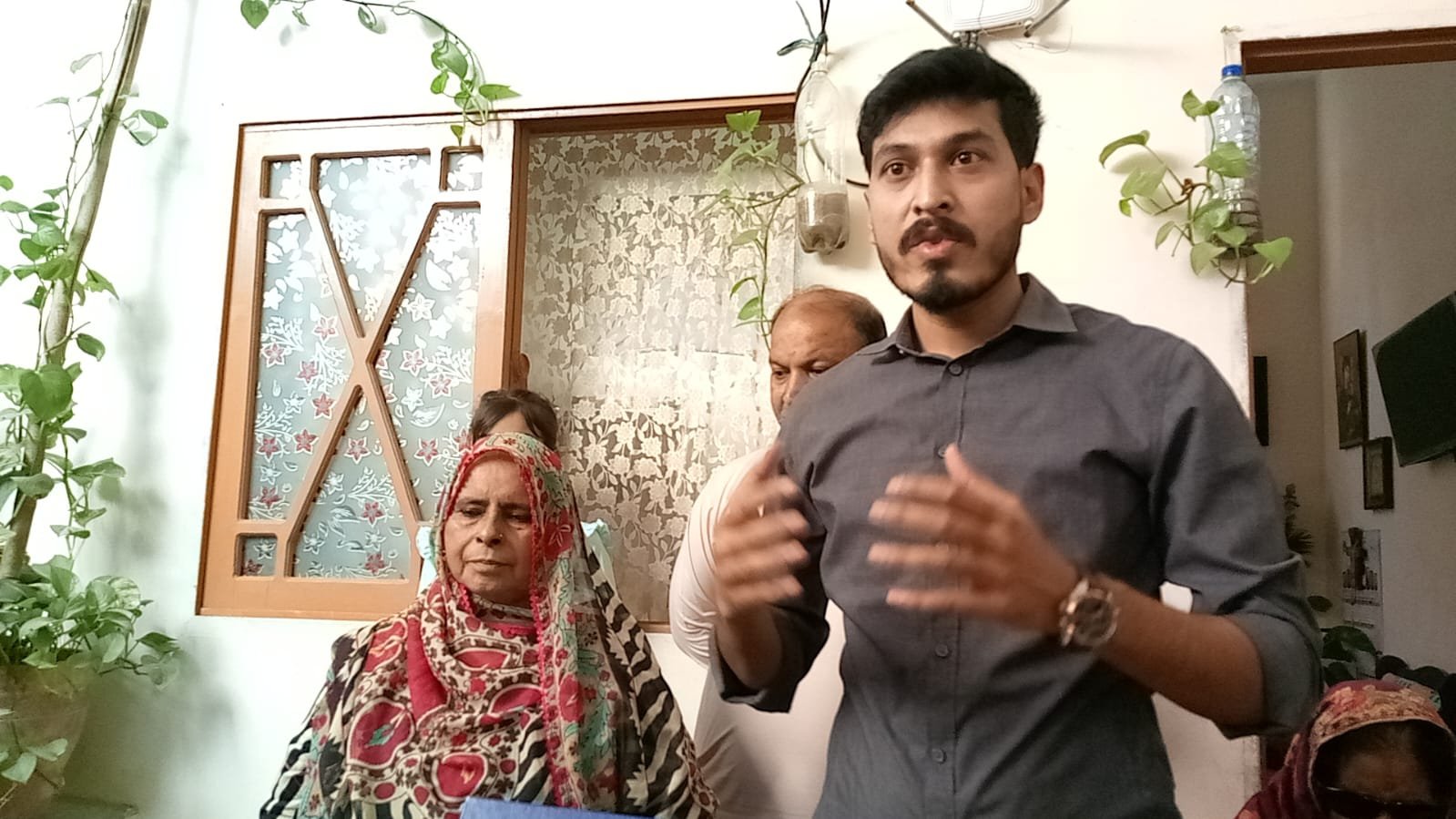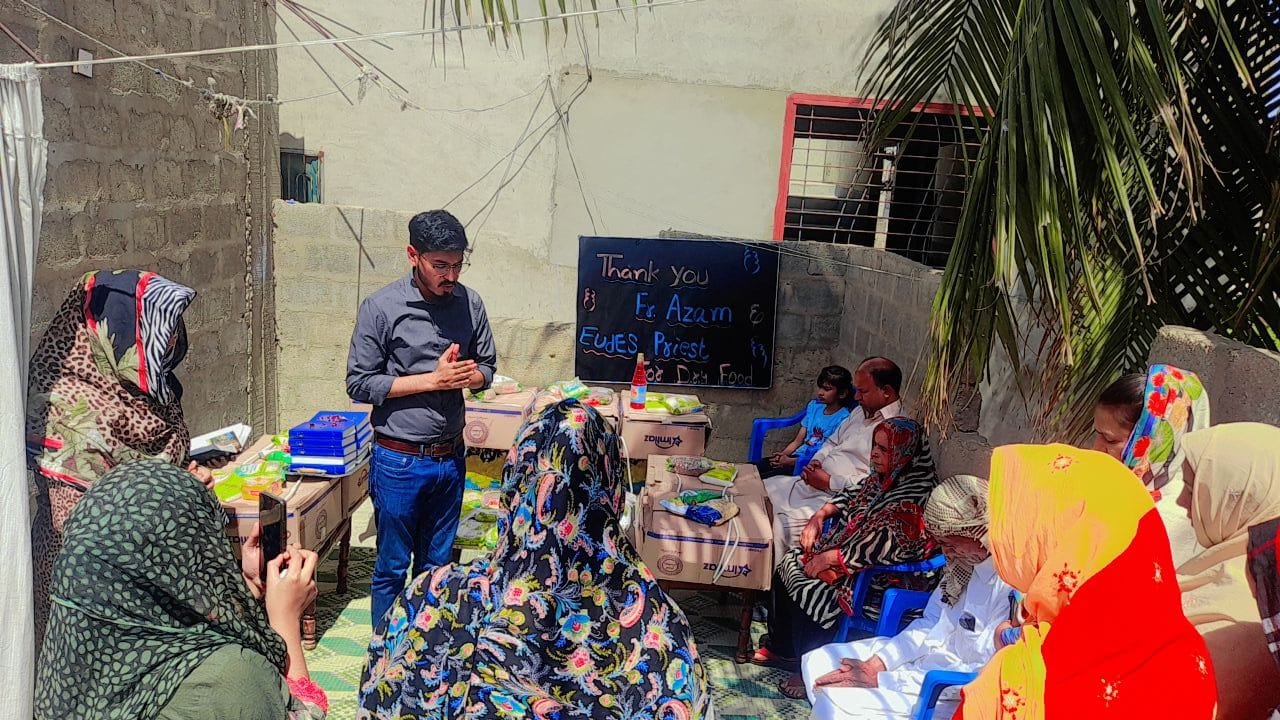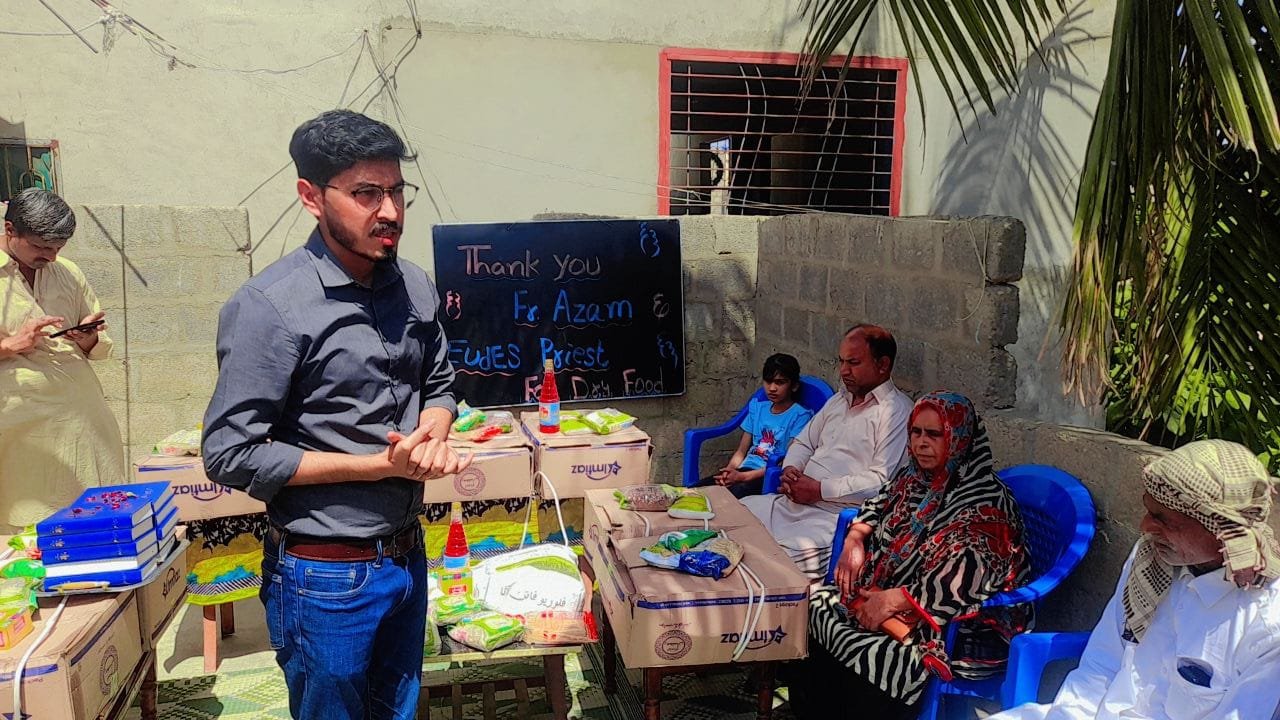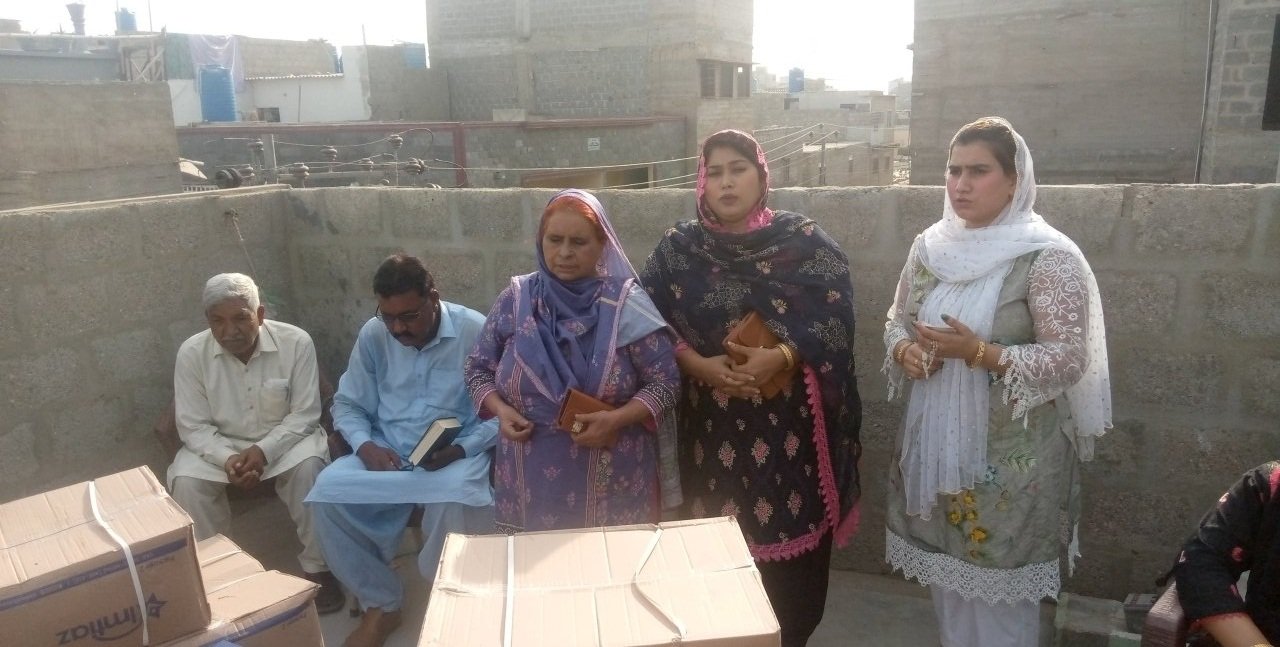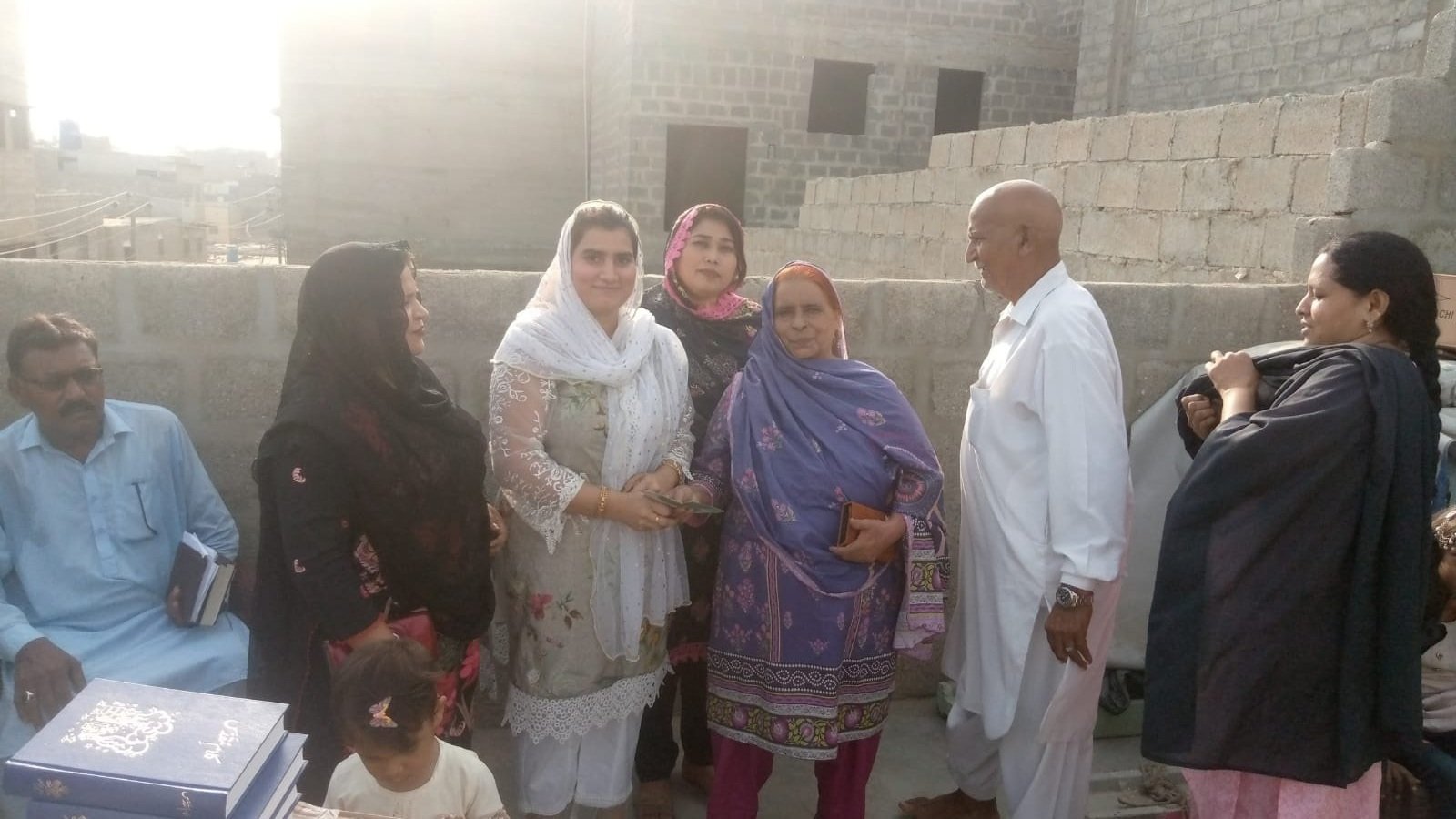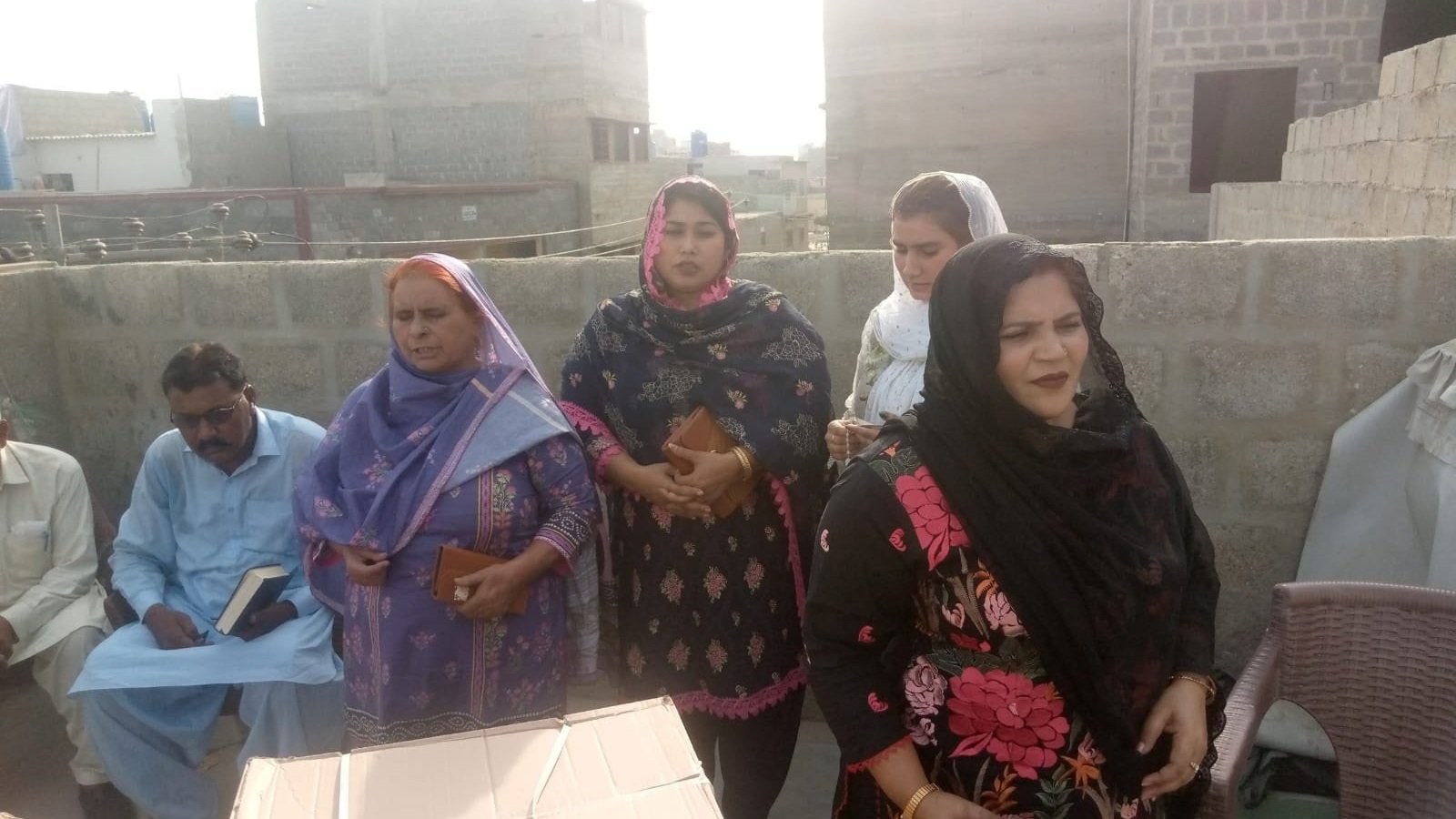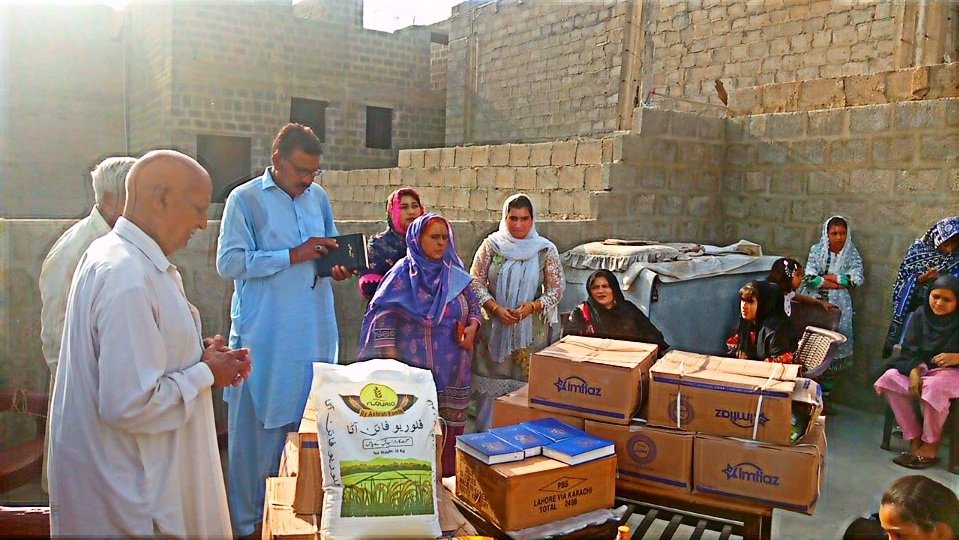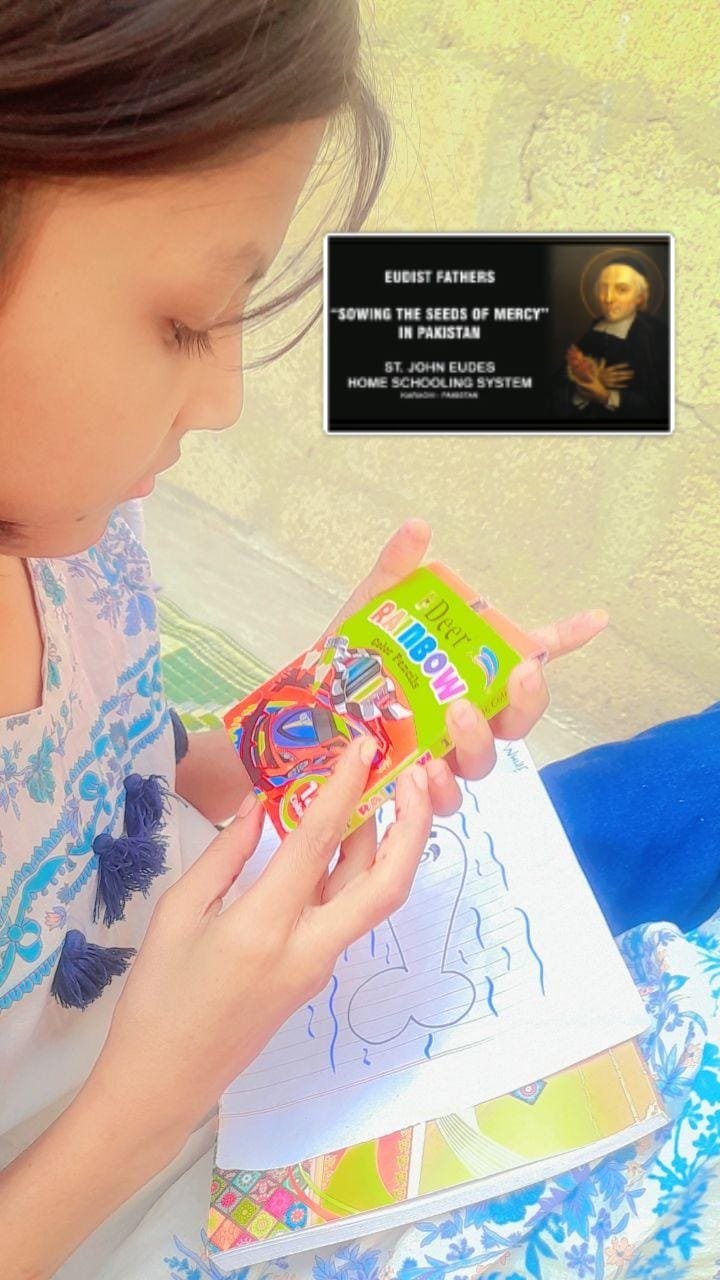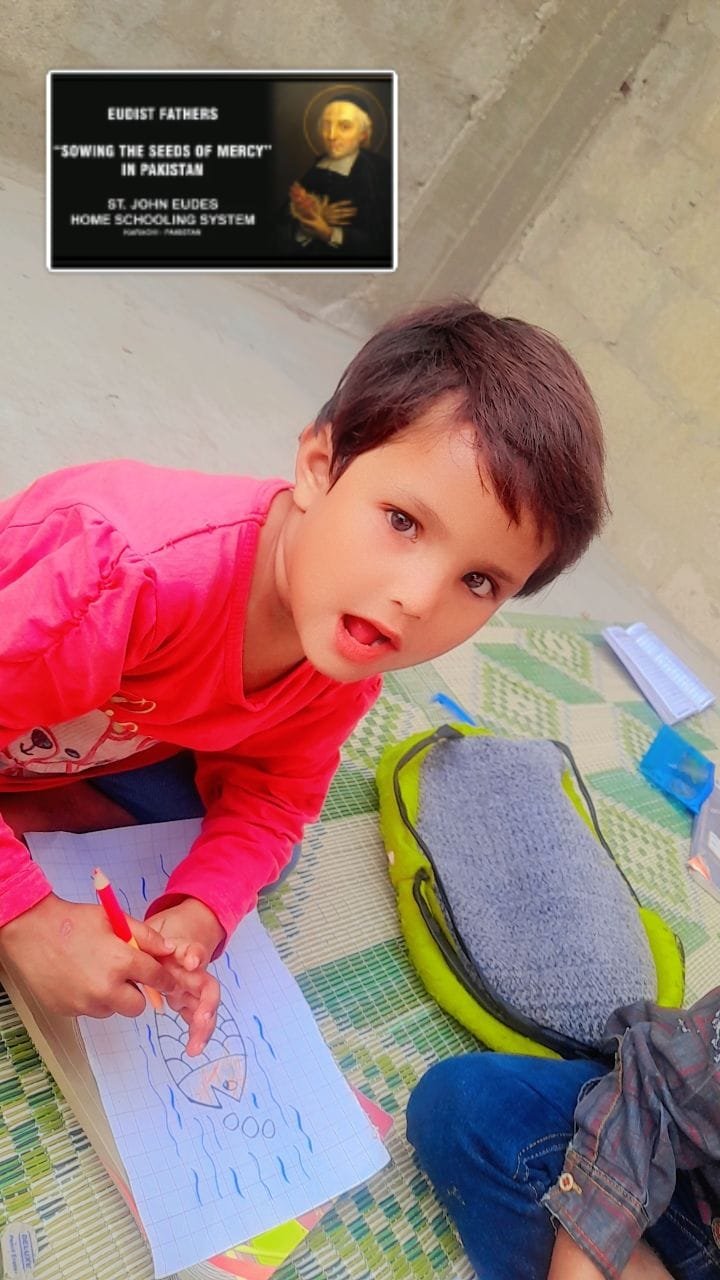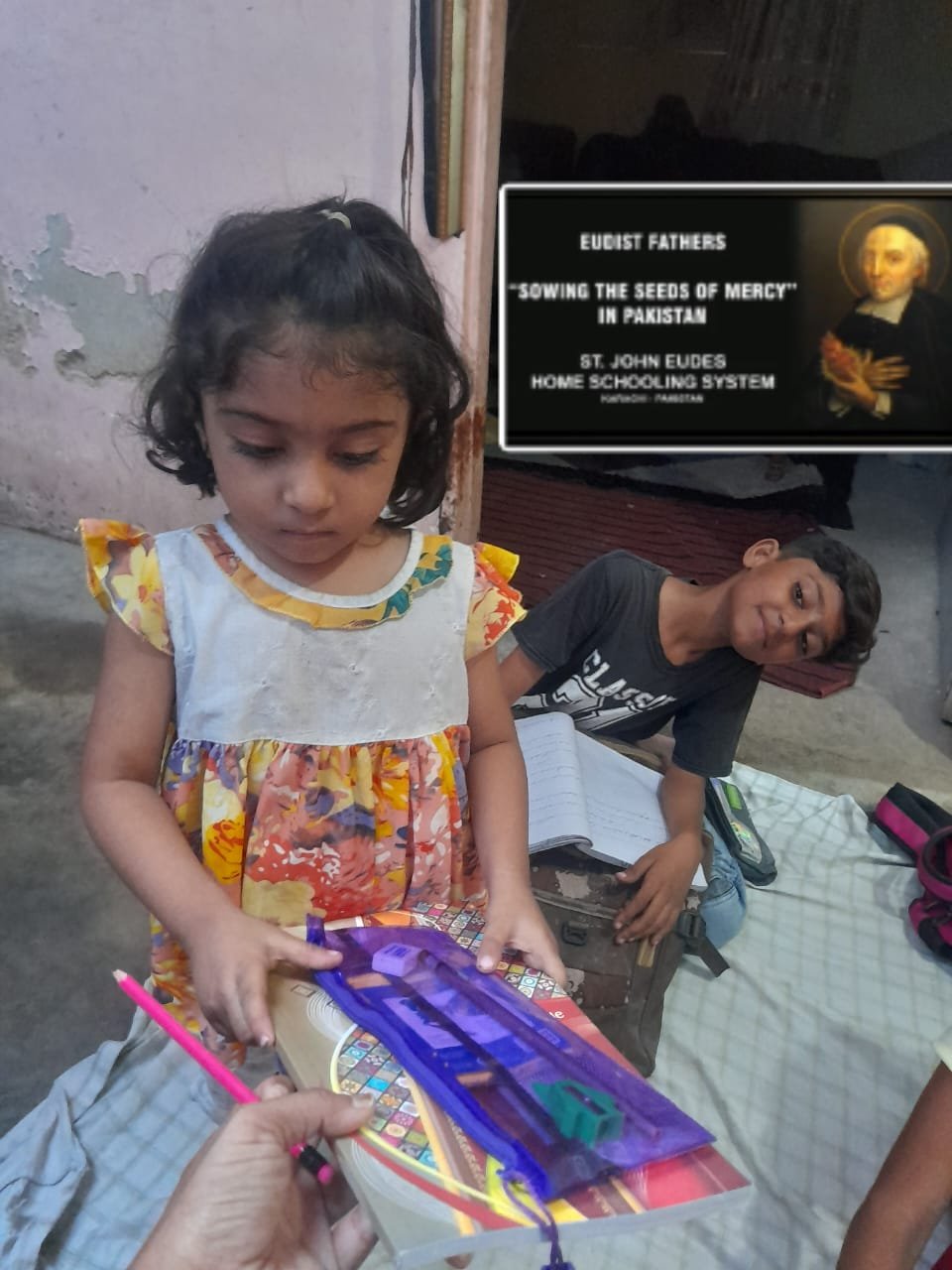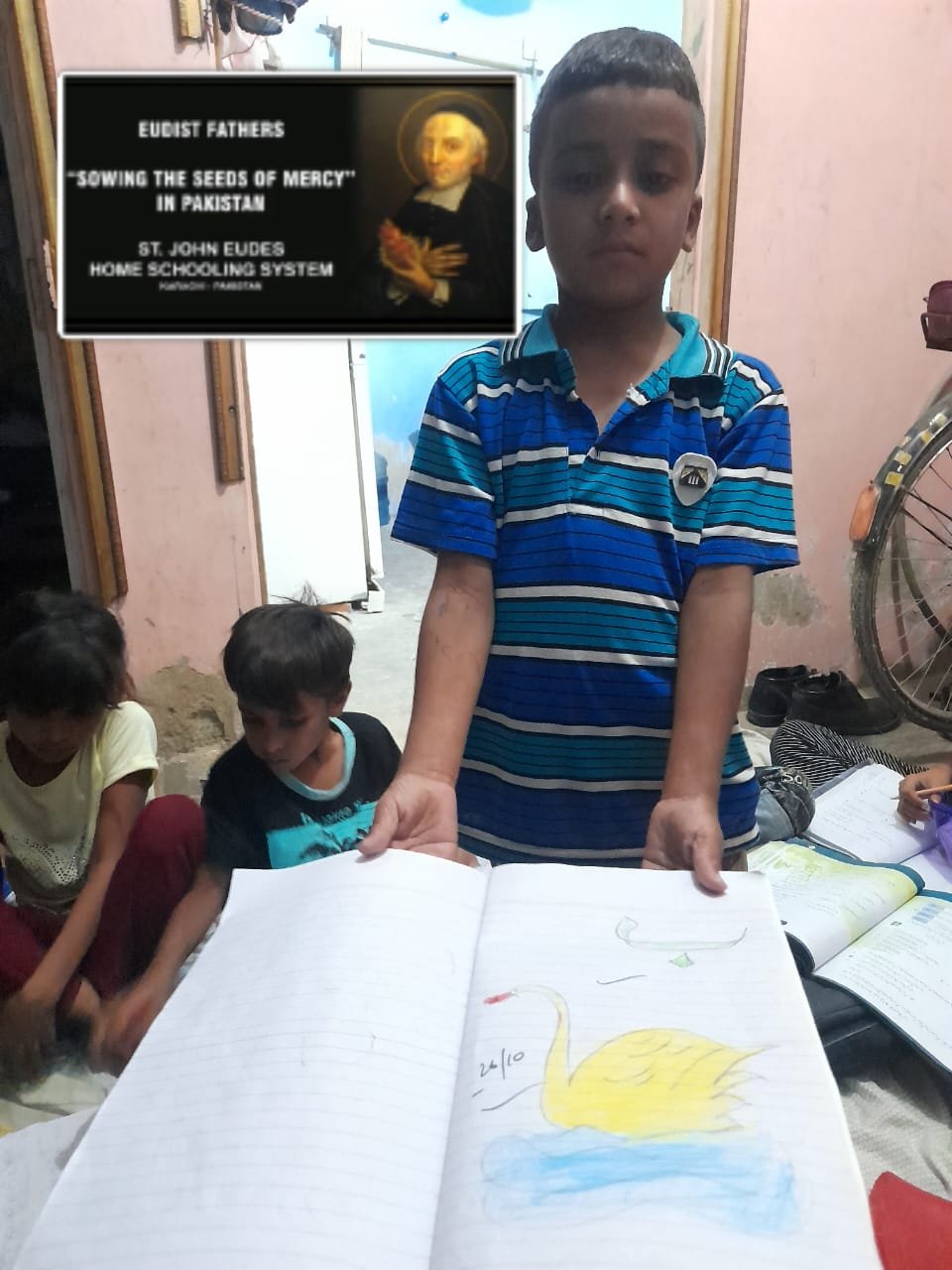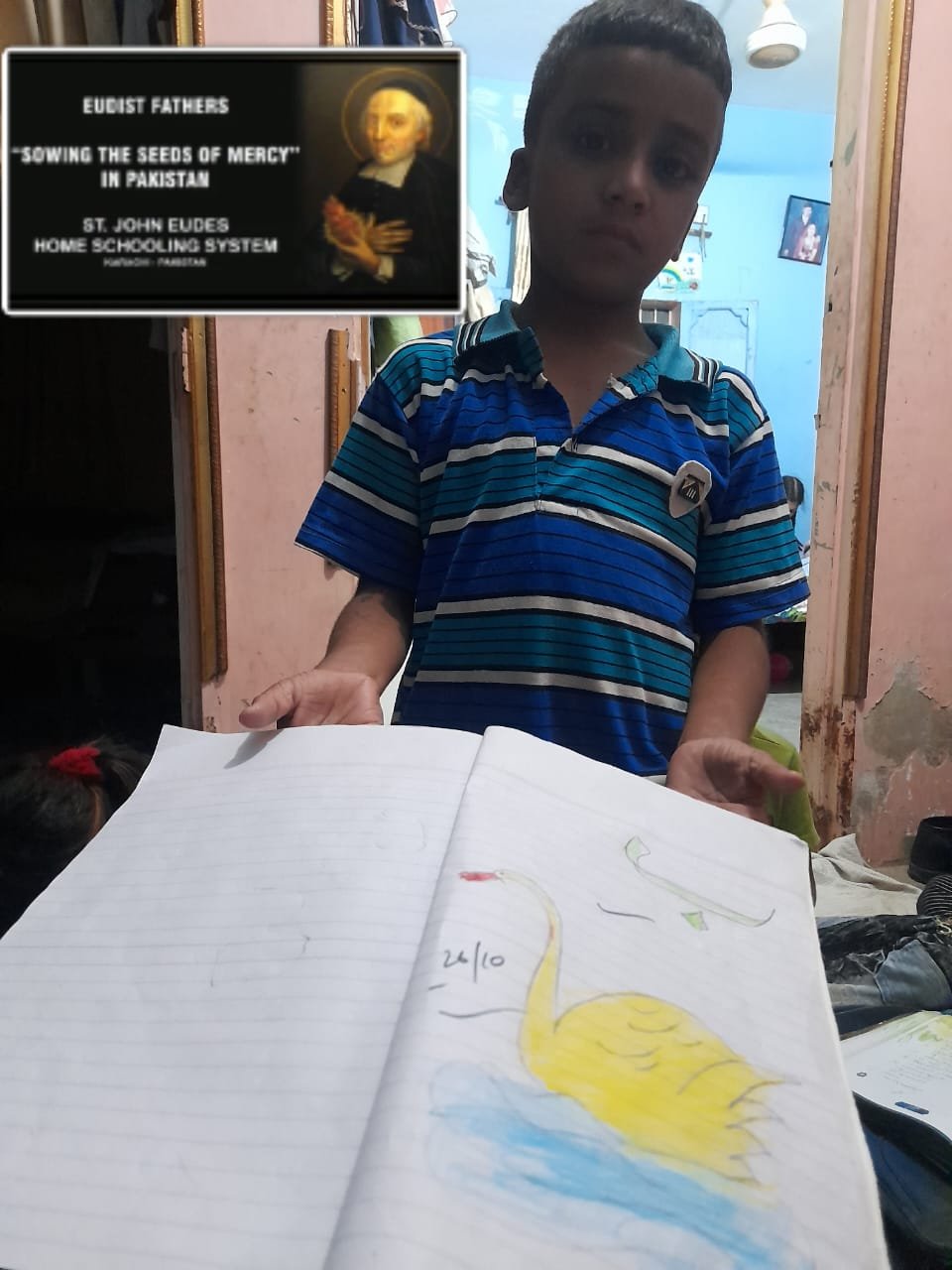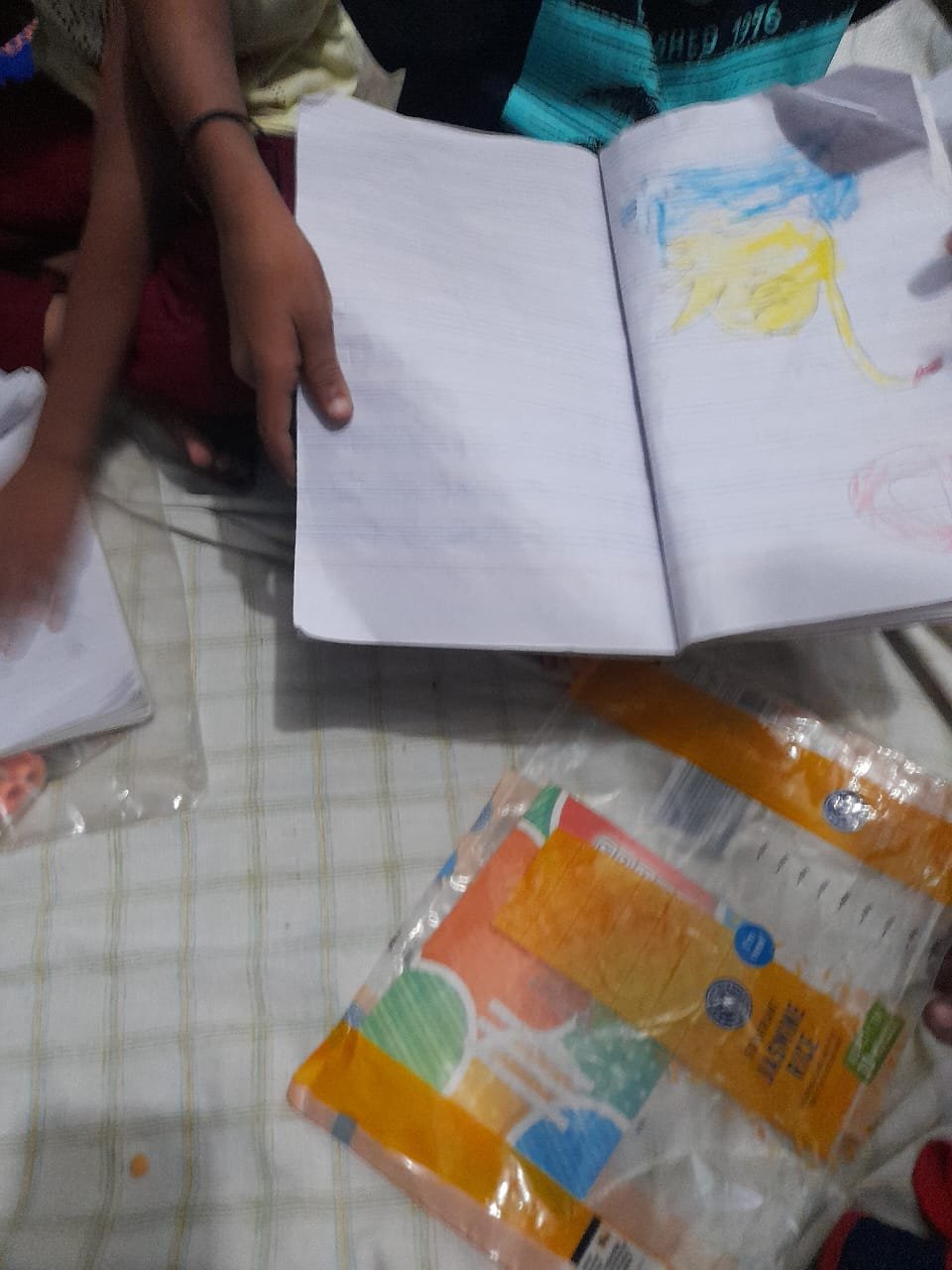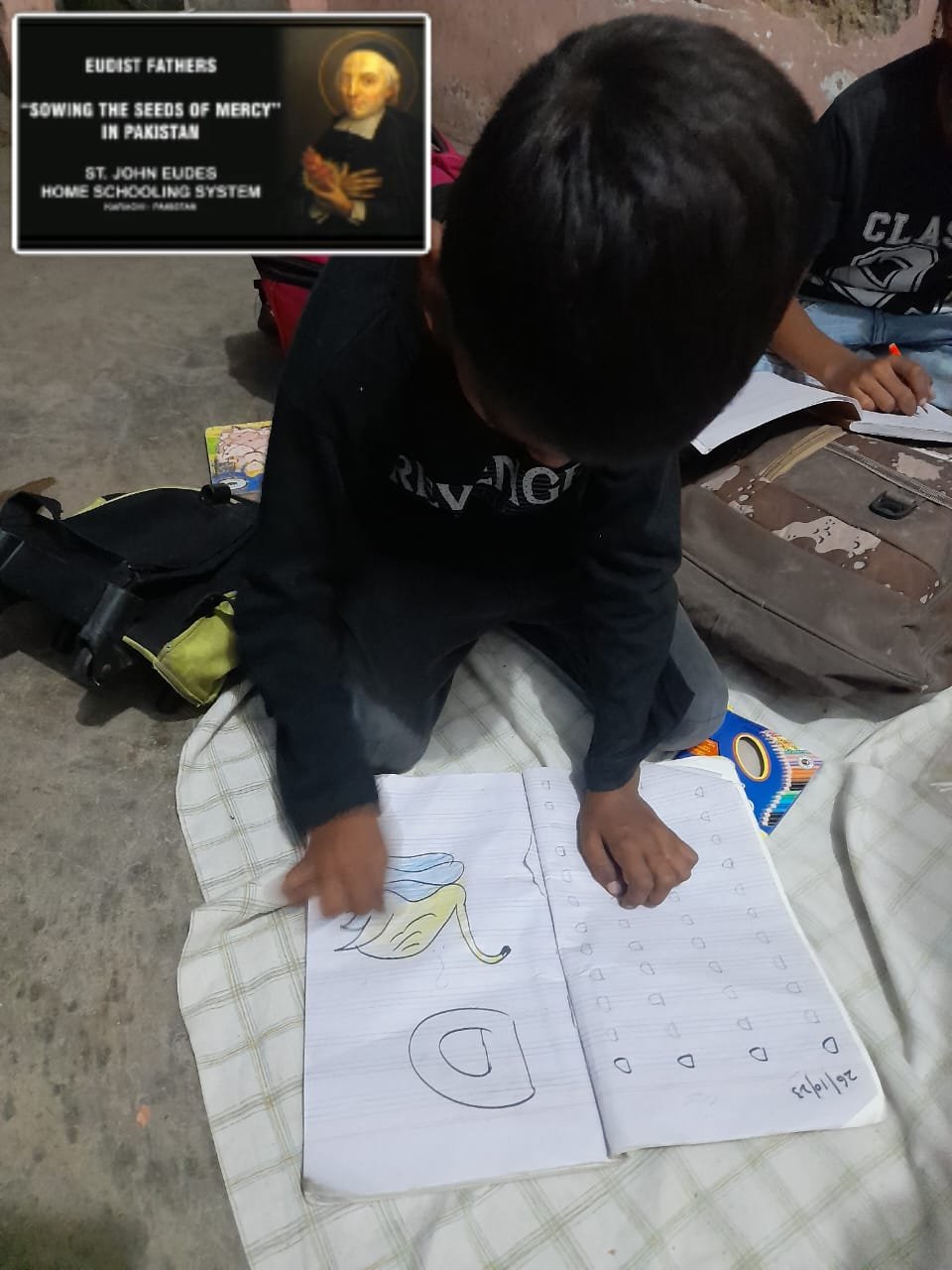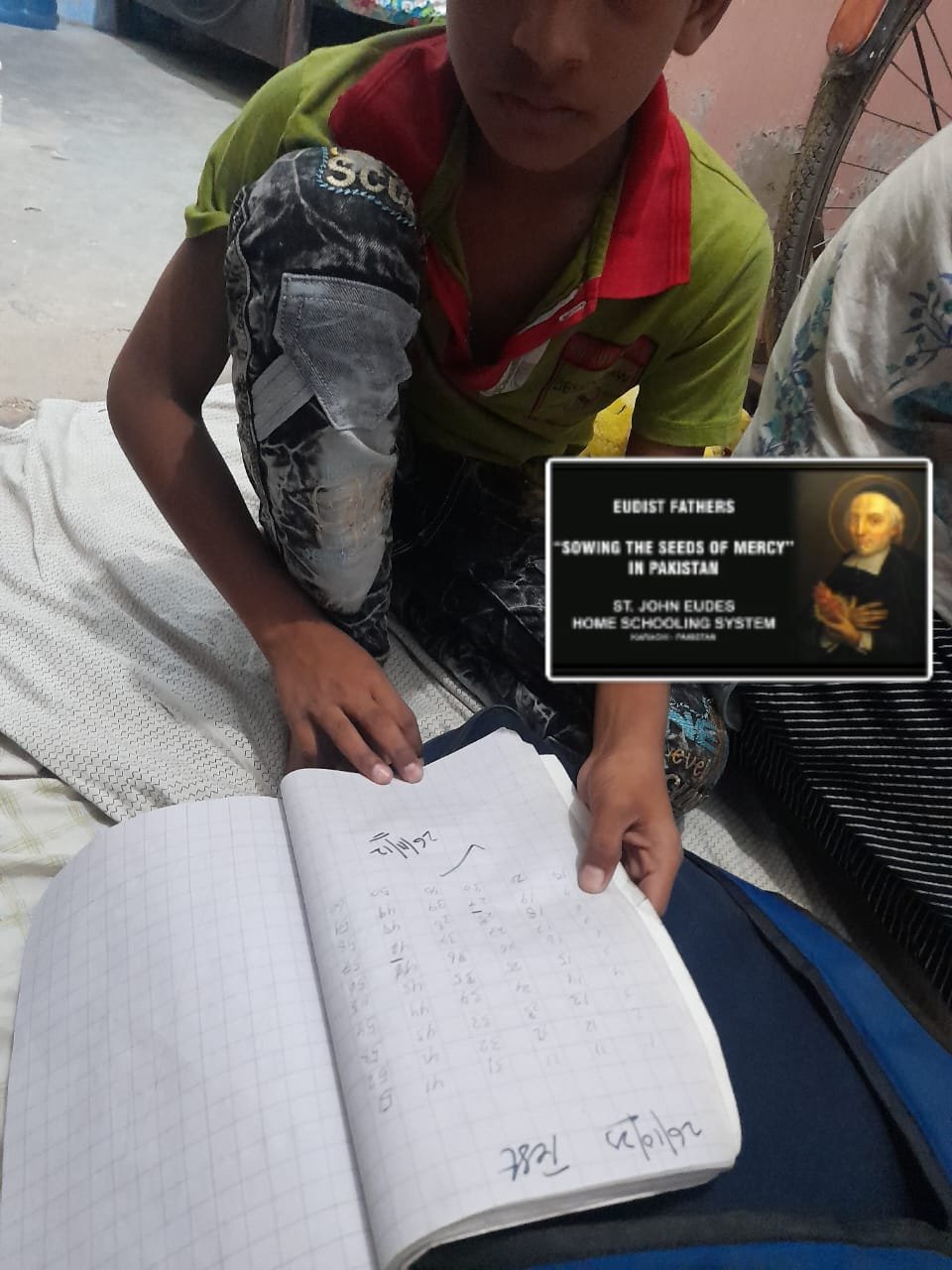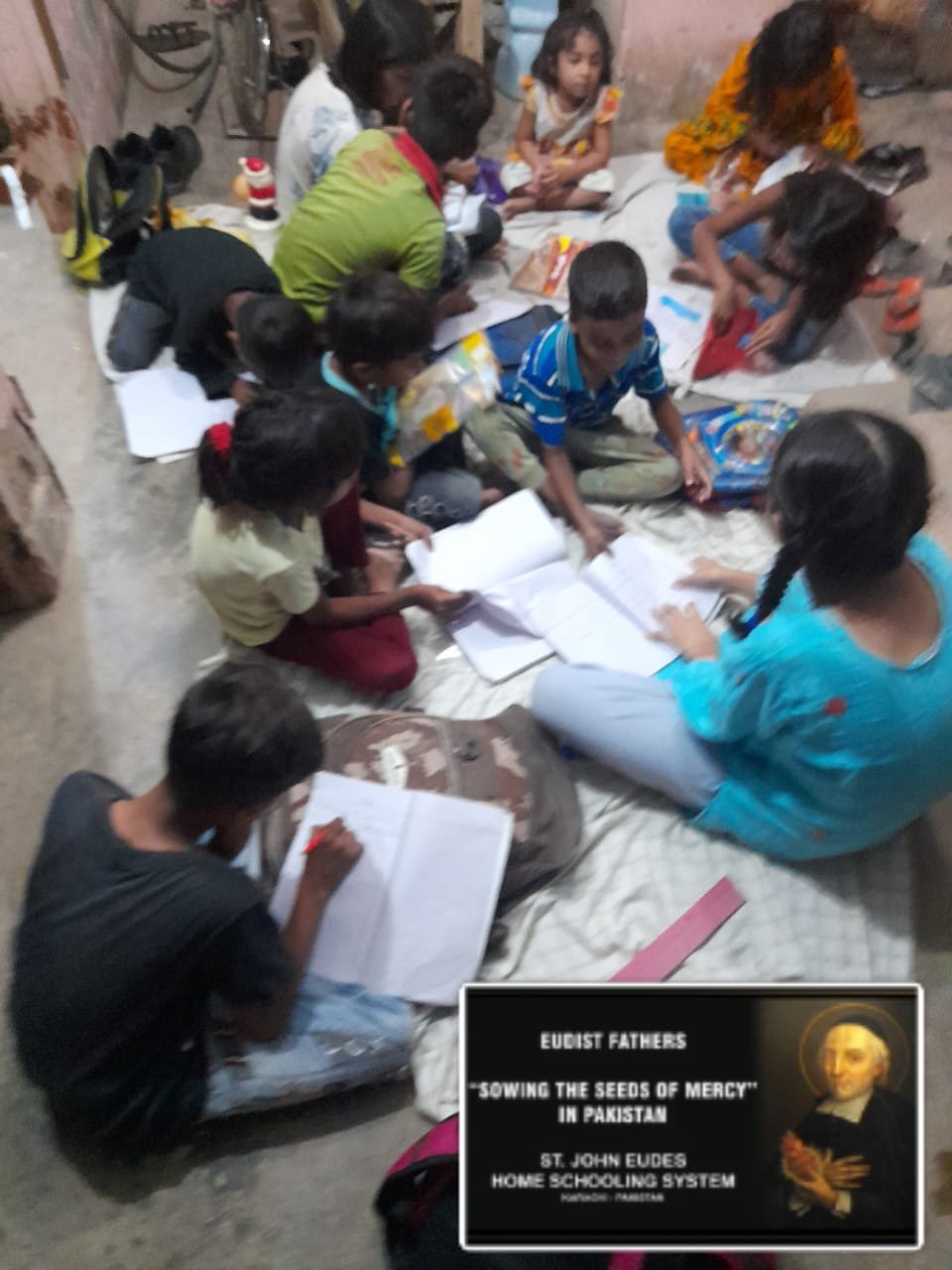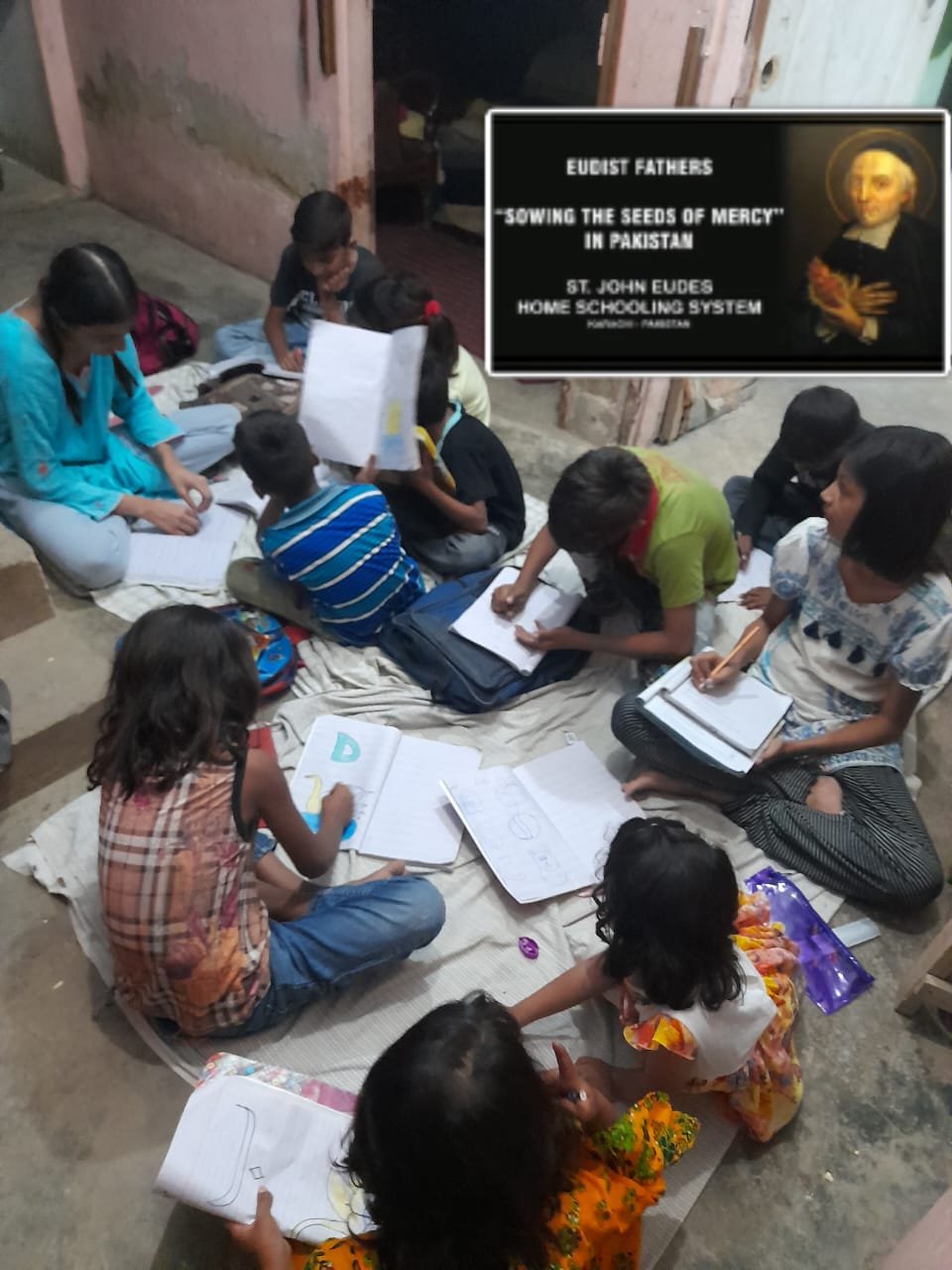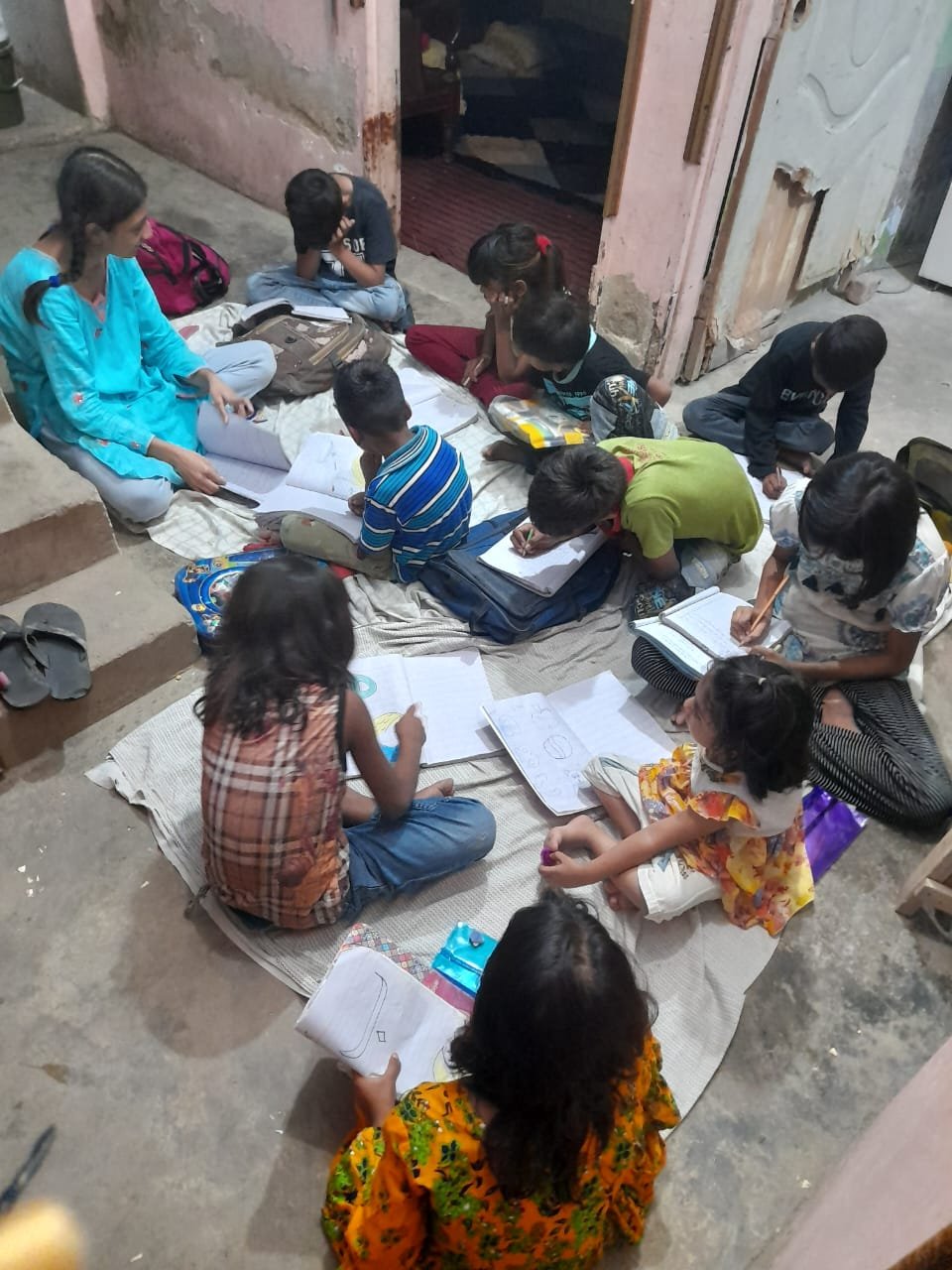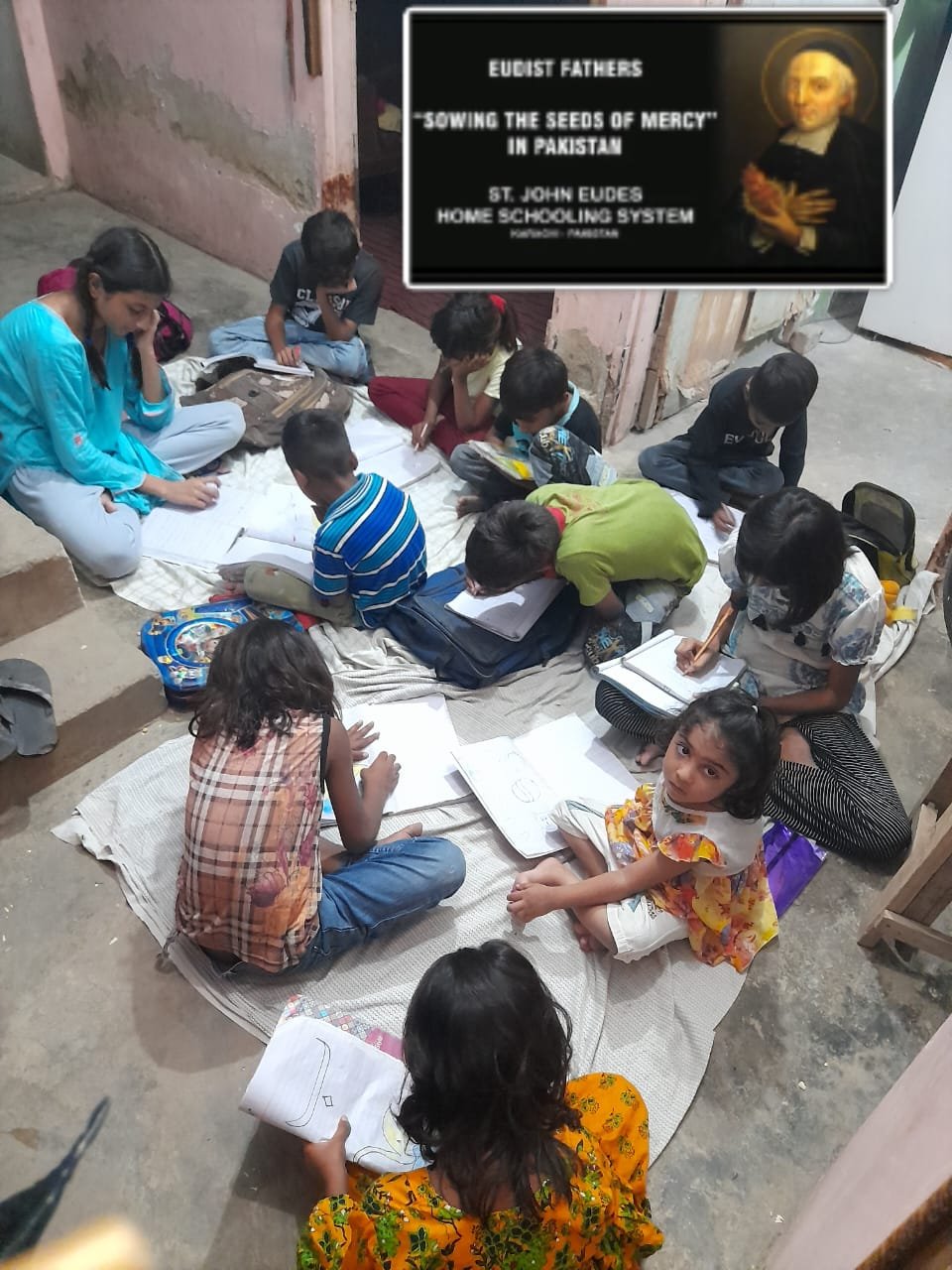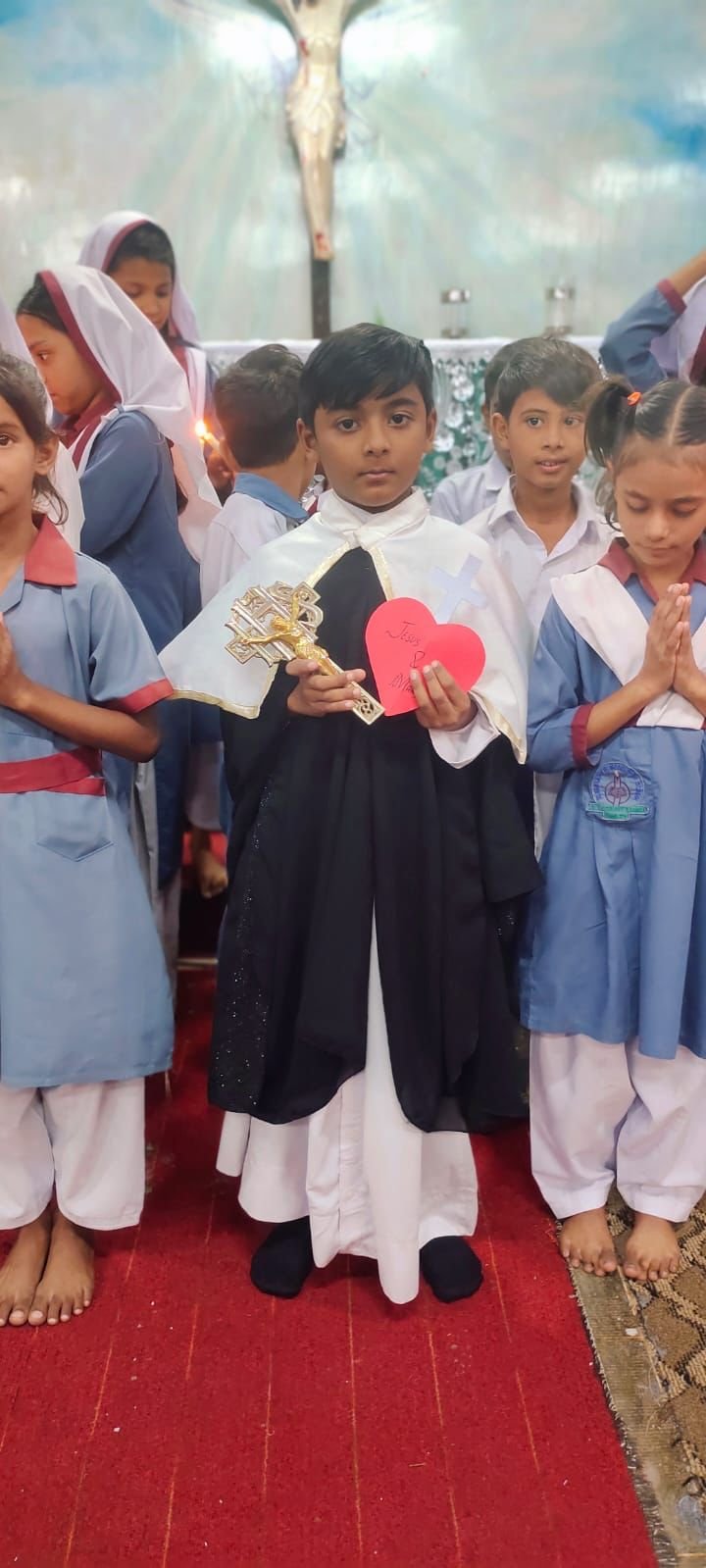Seeds of Mercy - August update
Students of the St. John Eudes Homeschooling System celebrated the liturgical feast of St. John Eudes on August 19, 2024



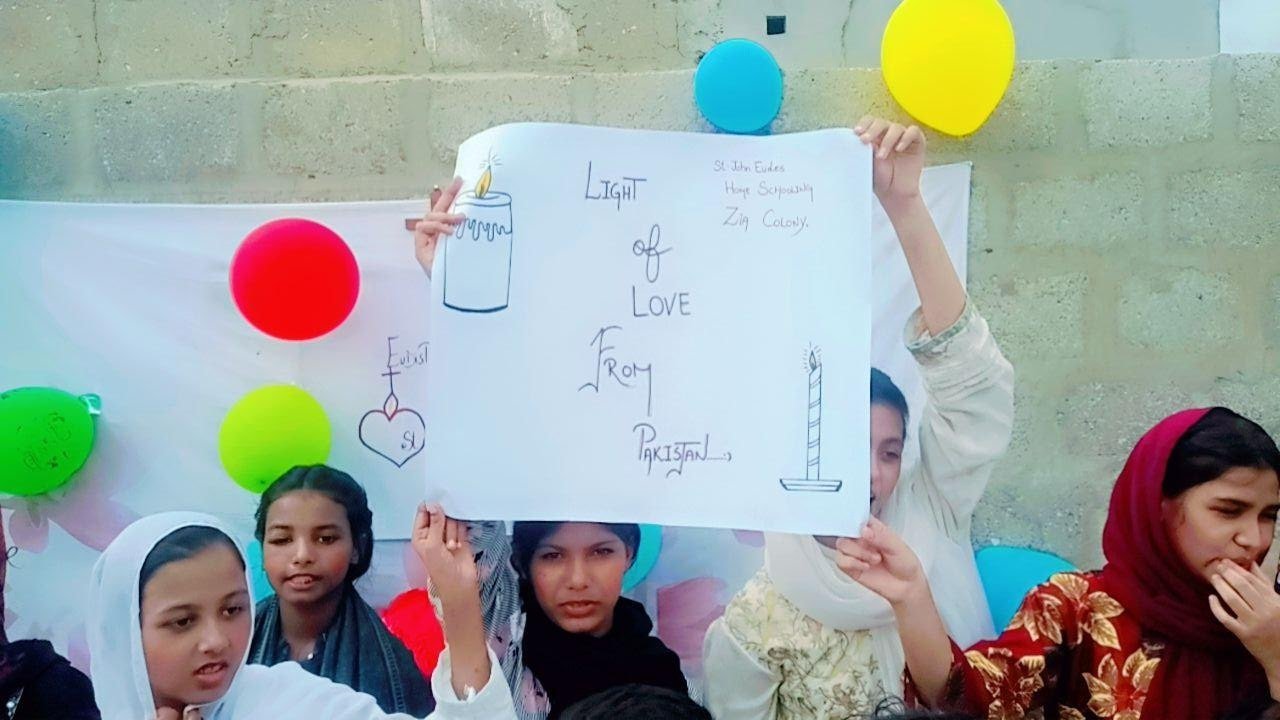













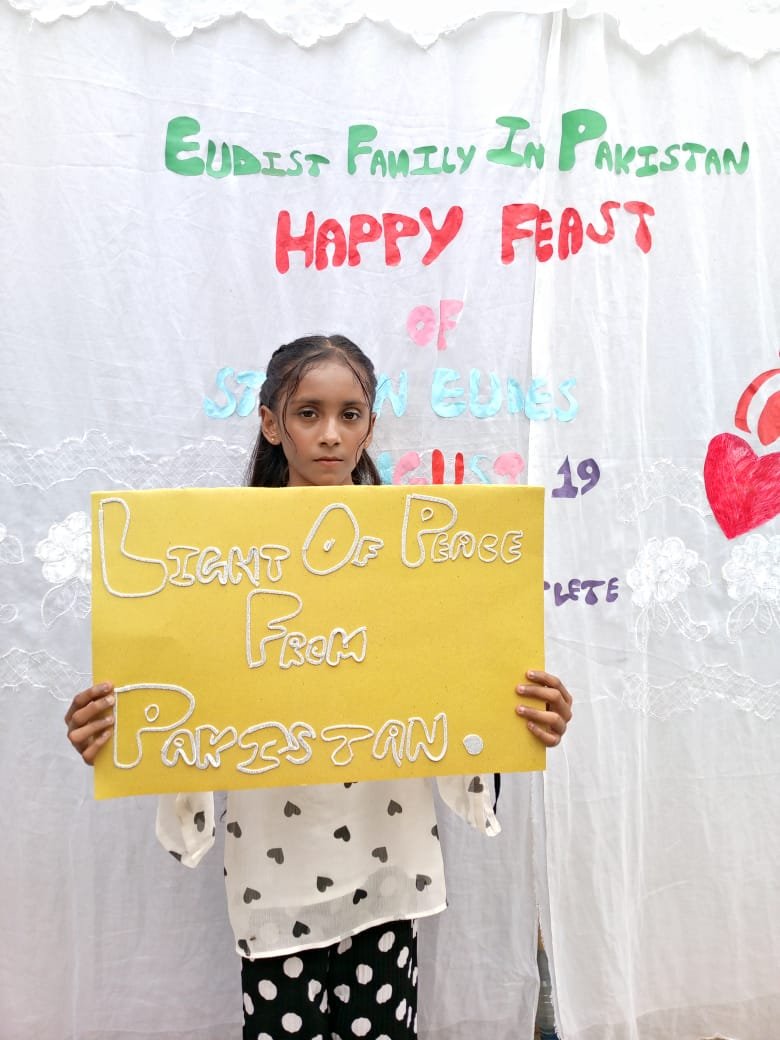
Seeds of Mercy: "I Desire Mercy" Update - March 2024
Lenten activities with “I Desire Mercy” to provide widows in need with food and bibles!
Seeds of Mercy: St. John Eudes' Homeschooling System Update



Seeds of Mercy November update
Please enjoy these newest images of the St. John Eudes Homeschooling program in Pakistan.
Seeds of Mercy October update
The Transfiguration of the Lord - A Revelation to the New Exodus by Fr. Azam Vianney Mansha, CJM - STL
Search + Sell = Kingdom of God by Fr. Azam Vianney Mansha, CJM - STL
Search + Sell = Kingdom of God
Fr. Azam Vianney Mansha, CJM - STL
With the 17th Sunday in Ordinary Time (A), we are going to finish the Parabolic Discourse of Jesus. As in the previous week, this week we also have three parables: The parable of the hidden treasure in a field (Matthew 13:44); the parable of fine pearls (vv. 45-46) and the parable of throwing nets into the sea (vv. 47-50). Like the other week, let’s take a thematic journey to deepen our understanding towards the eschatological parables.
So, before we unpack the mystery of today’s Gospel passage, I would like to briefly explain two words: parable and eschatology.
In Hebrew, ‘parable’ is called ל ָשׁ ָמ) mashal) for a short religious allegory. In a Jewish context (Midrash and Talmud), the parabolic way was a valuable means or a way of communication to determine the true sense of the Law/Old Testament. In a Christian context, while adopting the Old Testament explanation, ‘parable’ is seen as an earthly story full of earthly reality, images, things, but points towards heaven.
The Greek word, ἔσχατος (last) and λογία (study) ‘eschatology’ actually is a branch of Theology in which the study of ‘end things’ is done. The parables of Jesus do not only challenge us to raise our moral standards, but they prepare us for the end things. Take the example of today’s parable:
Again, the kingdom of heaven is like a net that was thrown into the sea and caught fish of every kind; when it was full, they drew it ashore, sat down, and put the good into baskets but threw out the bad. So it will be at the end of the age. The angels will come out and separate the evil from the righteous and throw them into the furnace of fire, where there will be weeping and gnashing of teeth.
Matthew 13:47-50
With this in mind, we move towards the Gospel passage to see two common themes in parables. The first common theme in all three parables is “search.” For example: a man searches for hidden treasure; a merchant searches for fine pearls and fishermen search for good fish. The second common theme can be “to sell in order to buy something new” or “to detach in order to attach to a new thing.” For example, a man who found treasure, he “sold” or “detached” from all things of the past in order to buy, to attach with the treasure; a merchant “sold” or “detached” from all things in order to buy fine pearls; and the fishermen “detached” themselves from bad fish in order to collect good fish.
Now let’s begin with the first theme, “to search.” Please do not take the meaning of the word ‘search’ literally, as if something was lost and then you have to search for it. NO!!! The Kingdom of God is not lost somewhere. The Kingdom of God is already among us as Jesus Christ preached Himself. It is we who are lost and need to go in search of the Kingdom of God. Actually, ‘to search’ means, as per Parabolic Discourse, it is an invitation to keep the faith alive that good is coming out.
Just take the example of the man, he found treasure, the merchant bought a fine pearl and the fisherman caught the good fish. Now think for a moment, if a man does not search for a treasure, a merchant does not search for a fine pearl and a fisherman does not search for good fish, would they be able to find, treasure, fine pearl and good fish? NO!!! So in that manner, if we do not search for the Kingdom of God while having a flame of faith in our heart, how are we going to find the Kingdom of God? So keep on searching or keep the flame of faith as an act to PUSH to enter into the Kingdom of God, and as you may know, PUSH stands for:
P = PRAY
U = UNTIL
S = SOMETHING
H = HAPPENS
Once we are successful in the search or filled with the fire of faith, we need “to sell” or “detach” from what we have. Now ‘to sell’ or ‘detach’ is a famous topic of prosperity Gospel preachers. They tell people that you have to give everything to God so that God can give you more blessings. I have two basic questions: If I have to give to God as the prosperity preachers say, then why is God giving to me in the first place? My second basic question is, “If I am a father or mother and I sell everything, which means, I cannot pay my rent anymore; I cannot send my children to school; I cannot pay the medical bills or or other bills?; in brief, my family and I will be suffering. A question, does God want us to suffer? No! As I always say about prosperity preaches who consider worldly things as blessings, they often forget that the third temptation of Jesus was about worldly things, as the devil told Jesus:
Then the devil took him to a very high mountain and showed him all the kingdoms of the world and their glory, and he said to him, “All these I will give you, if you will fall down and worship me.” Then Jesus said to him, “Away with you, Satan! For it is written, ‘Worship the Lord your God, and serve only him.’ ”
Matthew 4:8-10
So what is going on? As I have already shared with you, that parable is “an earthly story full of earthly reality, images, things but points towards heaven” and contains a twisting point / turning point. Now, when Jesus said that a man should sell everything to buy a treasure land; a merchant should sell everything to buy a fine pearl; think for a moment, if they sell their old things as a way to invest in new things or if they detach from old business in order to attach to new business, which is the Kingdom of God? So if you want to invest in the Kingdom of God, feed the hungry; if you want to collect treasure in heaven, clothe the naked; if you want a fine pearl, welcome the stranger. Indeed, we enter into the Kingdom of God not by giving to the prosperity preachers but by offering our charity to the hungry, the naked, the strangers, the sick and all those who are in need, as St. Augustine says:
God has no need of your money, but the poor. You give it to the poor, and God receives it.
St. Augustine of Hippo
May the powerful intercession of our Mother, the Blessed Virgin Mary, be our strength to constantly search the Kingdom of God among us while investing our time, talent and treasure in our less fortunate brothers and sisters in order to prepare ourselves for eternal life.
Seeds of Mercy June Update


